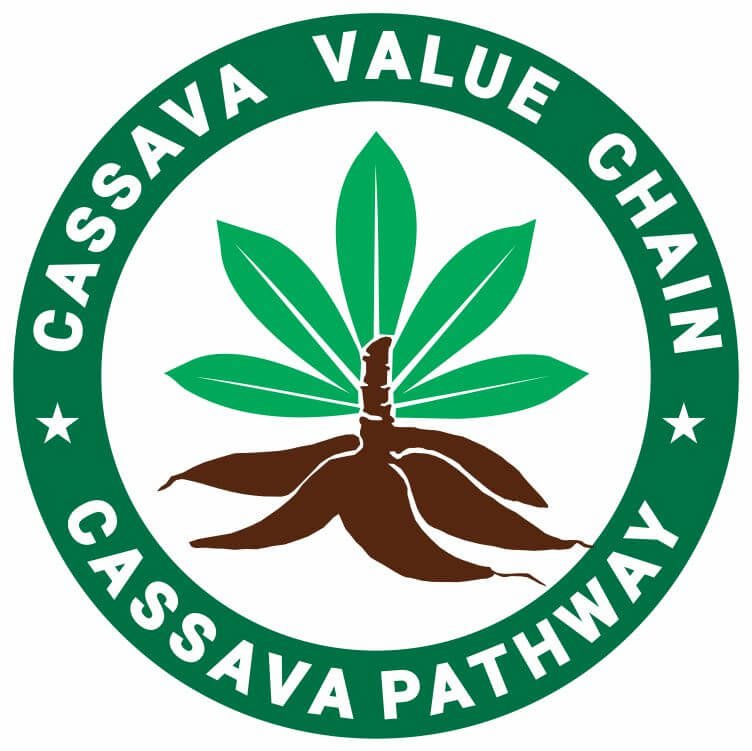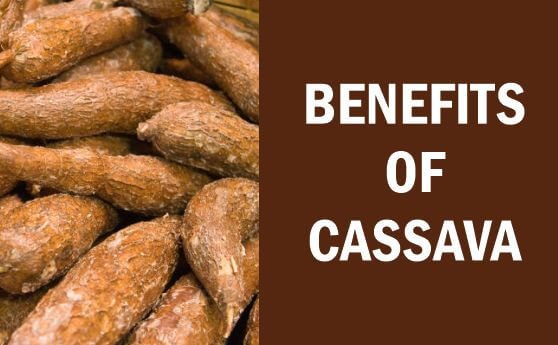The benefits of cassava go beyond food, it’s a nutritional powerhouse, an economic driver, and a sustainability hero. Discover how this resilient crop supports health, industries, and global food security.
The benefits of cassava are numerous. It feeds millions and powers industries. It grows where other crops fail, making it a lifeline for farmers and communities.
Loaded with carbohydrates and fiber, it fuels the body and supports digestion. Its uses go beyond the kitchen: starch from cassava strengthens textiles, thickens sauces, and helps produce biofuel.
Tapioca pearls, flour, and fermented foods keep it relevant in modern diets. Farmers rely on it for income, and industries depend on its byproducts.
Some fear its cyanide content, but proper processing makes it safe. As demand grows, cassava continues to shape economies, diets, and sustainability efforts.
Understanding the full benefits of cassava and its value chain helps you see why this root crop remains a pillar of food security and industry worldwide.
Related: The Many Benefits of the Cassava Tuber
Nutritional Benefits of Cassava

Cassava has many nutritional benefits, making it a valuable staple in many diets. It is a rich source of carbohydrates, providing steady energy for daily activities.
As a source of carbohydrates, it provides approximately 40 grams per 100 grams of cooked cassava.
Cassava’s dietary fiber supports digestion and promotes gut health. While naturally low in protein and fat, it pairs well with protein-rich foods for a balanced diet.
This root also contains essential vitamins and minerals, including vitamin C for immunity, folate for cell growth, and iron for oxygen transport. Its fiber aids bowel movements, while its complex carbs ensure sustained energy levels.
However, cassava contains cyanogenic compounds that can be harmful if not prepared properly.
Traditional methods like soaking, fermenting, and cooking reduce these compounds, making it safe to eat. Learn more about the full nutritional profile of cassava here.
Health Benefits of Cassava
Cassava is beneficial to health, which makes it a valuable addition to a balanced diet. Its resistant starch supports digestive health by nourishing gut bacteria and promoting a healthy microbiome.
Cassava also aids in weight management by increasing satiety and supporting metabolism. As a naturally gluten-free root, it is an excellent alternative for people with celiac disease or gluten sensitivities.
Additionally, cassava contributes to heart health by helping regulate cholesterol levels and supporting healthy blood pressure.
Its complex carbohydrates have a lower glycemic response, which may assist in blood sugar control and improve insulin sensitivity. When prepared properly, cassava can be a nutritious and beneficial dietary choice. More on the health benefits of cassava.
Related: Cassava Research and Improvement
Industrial Benefits of Cassava
Cassava’s many industrial benefits are why it is a valuable resource across various sectors.
Its starch is widely used in industries such as food processing, textiles, and paper manufacturing, where it serves as a thickener, binder, and coating agent.
Cassava also contributes to biofuel production, offering a renewable energy source that contributes to sustainable fuel alternatives.
In the textile and paper industries, cassava-derived adhesives and coatings improve product quality and durability.
Additionally, its starch is used in pharmaceutical and cosmetic applications, where it enhances formulations for medicines, skincare products, and personal care items.
The starch from cassava is capable of enzymic hydrolysis converting into glucose and fermented by microorganisms which makes it an important raw material for various industries. See more on the industrial application of cassava.
Economic and Agricultural Benefits of Cassava

Manioc has many economic and agricultural benefits, that make it an important crop for both local and global economies.
As a cash crop, it provides income for millions of farmers who are entrepreneurs and plays a key role in trade and industry.
It is a highly productive crop that can be processed into various products, including starch, flour, ethanol, and animal feed.
Its drought-resistant nature makes it vital for food security, especially in regions with unpredictable rainfall.
Cassava also contributes to sustainable agriculture by improving soil health and supporting regenerative farming practices.
Additionally, cassava farming creates employment opportunities, driving rural development and strengthening livelihoods in farming communities.
By leveraging cassava farming and processing, countries like Nigeria can unlock substantial economic benefits and reduce poverty.
Check out our post on the economic benefits of cassava.
Culinary Benefits of Cassava
Apart from being a staple food in some developing countries. There are a lot of cassava recipes related to cassava around the world.
Cassava can be boiled, fried, or baked and used as a side dish or in stews and soups. Cassava flour is used to make breads, cakes, and tapioca.
In South America, the pulp is grated, squeezed, and cooked into pies, cakes, or porridge.
Fufu, a popular West African dish, is made by pounding boiled or steamed cassava into fufu or akpu, a sticky cassava meal eaten with soups.
Farina, common in South America and the West Indies, is made by pressing, sieving, and roasting cassava pulp into a cereal.
Cassava leaves can also be eaten, often as an ingredient in soups and stews in Central Africa.
Cassava is also used to produce alcoholic beverages like kasiri in South America and tapioca pudding.
Here is more on the culinary benefits of cassava.
Related: Interaction of Cassava and Pregnancy
Environmental and Sustainability Benefits
The environmental and sustainability benefits of cassava are why it is an eco-friendly crop for agricultural systems.
Its low water requirement allows it to thrive in drought-prone regions, reducing the strain on water resources.
Cassava also contributes to soil regeneration and carbon sequestration, helping improve soil fertility and mitigate climate change.
Additionally, its byproducts, such as cassava peels, can be repurposed for animal feed and compost, minimizing waste and promoting sustainable farming practices.
Also, cassava is capable of absorbing heavy metals from the soil, mitigating contamination in cocoa production and supporting sustainable agriculture practices.
With its resilience and multiple uses, cassava supports both environmental conservation and sustainable agriculture.
By growing cassava on abandoned agricultural or pasture land, farmers can revive soils for other income-generating crops, promoting sustainable land use and reducing deforestation.
See the benefits of cassava to the environment.
Animal Feed Benefits of Cassava
Cassava offers several benefits as an animal feed ingredient.
Cassava can be used to produce a range of feed fractions, including root meal, peels, and leaves, which provide energy, protein, and minerals.
It can replace maize in diets for cattle, small herbivores, and swine, and can be used up to 100% in aquaculture diets.
Cassava-based feeds require specific nutrient balancing but offer local alternatives with the potential for improved nutritional value, lower feed costs, and increased profitability.
See more on cassava for animal feeds.
Medicinal Uses of Cassava
Cassava offers several medicinal uses and benefits. It can be used to speed up wound healing by applying a paste made from crushed cassava leaves and aloe vera gel to the wound.
Cassava leaves can also be used to make a natural face mask for skincare benefits.
As mentioned above, the tuberous vegetable is rich in vitamins and minerals, including vitamin C, which helps boost immunity and collagen synthesis.
Cassava can also help manage blood sugar levels, improve digestion, and lower the risk of cardiovascular diseases.
Also, it contains antioxidants that promote overall wellness and may even help lower the risk of cancer.
Frequently Asked Questions on the Benefits of Cassava
What are the environmental benefits of cassava?
Cassava can restore degraded land, lower greenhouse gas emissions, alleviate hunger, and reduce poverty by promoting sustainable land use and agriculture practices.
How does cassava contribute to food security?
Cassava research for development approaches has contributed to measurable gains in area planted to cassava, cassava yields, and household calorie intake, improving food security for smallholder farmers.
What are the economic benefits of cassava?
Cassava can generate significant economic benefits through starch production, exports, and local industries, creating jobs and stimulating economic growth in regions where it is grown.
What are the cultural benefits of cassava?
Cassava is a culturally significant crop in many societies, used in traditional medicine, rituals, and ceremonies, symbolizing fertility, prosperity, and good fortune, and supporting local communities.
What does cassava do to your body?
Cassava helps manage blood sugar levels, improves digestion, and supports gut health due to its high content of resistant starch and fiber.
Is cassava good for the kidneys?
Yes, cassava leaf extract can repair kidney damage caused by gentamicin-induced nephrotoxicity in mice, reducing serum creatinine levels and improving histopathological scores.
Final Word from Cassava Pathway
The benefits of cassava extend across nutrition, industry, agriculture, and sustainability, making it a vital resource for millions worldwide.
As a nutrient-rich staple, it fuels the body while supporting digestive health and offering a gluten-free alternative.
Its industrial applications power diverse sectors, from food production to biofuels.
Economically, it provides income for farmers and boosts rural development, while its drought resistance ensures food security.
Environmentally, cassava aids soil regeneration and minimizes waste through sustainable practices.
Despite concerns about cyanide content, proper preparation makes it safe and beneficial.
Understanding cassava’s full potential highlights why it remains a crucial crop for health, industry, and global sustainability.
References
- https://www.tuasaude.com/en/cassava
- https://myserenitykids.com/blogs/news/cassava-root-benefits-nutritional-facts-and-more
- https://www.medicalnewstoday.com/articles/323756
- https://www.verywellfit.com/cassava-nutrition-facts-calories-carbs-and-health-benefits-4177847
- https://www.healthifyme.com/blog/cassava-benefits/

